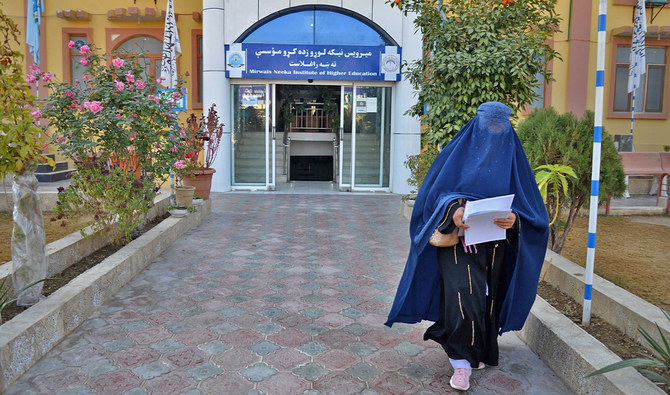Afghanistan’s Taliban-run government on Tuesday suspended university access for female students, drawing condemnation from foreign governments and complicating efforts by the Taliban administration to gain international recognition.
Following are reactions from the United Nations, foreign governments and rights groups.
STEPHANE DUJARRIC, United Nations spokesperson:
“It’s another very troubling move and it’s difficult to imagine how the country can develop, deal with all of the challenges that it has, without active participation of women and the education of women.”
ANTONY BLINKEN, United States Secretary of State:
“Deeply dismayed by the announcement from the Taliban denying women the right to a university education. Afghan women deserve better. Afghanistan deserves better.”
“The Taliban have just definitively set back their objective of being accepted by the international community.”

An Afghan female student stands in front of the entrance gate of Kabul University in Kabul, Afghanistan, on December 21, 2022. (REUTERS)
QATAR FOREIGN MINISTRY:
“The State of Qatar expresses deep concern and disappointment with the Afghan caretaker government’s decision to suspend girls’ and women’s studies in Afghan universities.
“As a Muslim country in which women enjoy all their rights, especially education, the State of Qatar calls on the Afghan caretaker government to review its decision in line with the teachings of the Islamic religion concerning women’s rights.”
ANNALENA BAERBOCK, German Foreign Minister:
“By destroying the future of girls and women in Afghanistan, the Taliban decided to destroy their own country’s future. I will put the issue on the agenda of the G7 tomorrow. The Taliban may try to make women invisible, but won’t succeed — the world is watching.”
BARBARA WOODWARD, Britain’s United Nations Ambassador:
“(It is) another egregious curtailment of women’s rights and a deep and profound disappointment for every single female student. It is also another step by the Taliban away from a self-reliant and prosperous Afghanistan.”
MELANIE JOLY, Canadian Foreign Minister:
“The Taliban announced that they are suspending female students from attending universities, denying them the prospect of a better life. Equal access to all levels of education is a right to which every woman and every girl is entitled. We condemn this outrageous violation.”
PAKISTANI FOREIGN MINISTRY:
“We strongly believe that every man and woman has the inherent right to education in accordance with the injunctions of Islam. We strongly urge the Afghan authorities to revisit this decision.”
AGNES CALLAMARD, Secretary General, Amnesty International:
“It is hate, another expression of violence to maintain and preserve the power of men over women, to keep women in a small airless space. This is what Taliban is making of Afghanistan. A prison for women.”






















